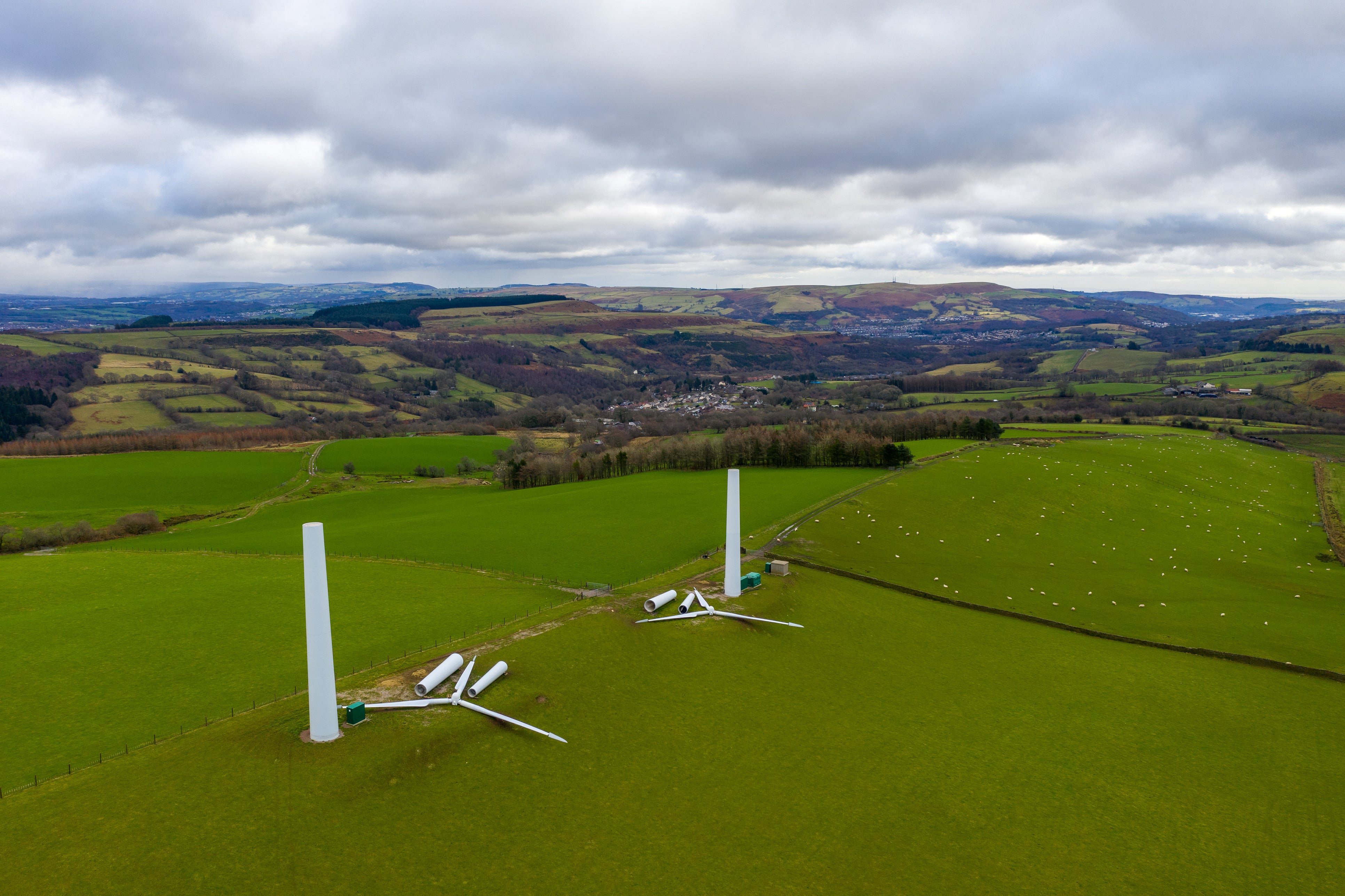Why we need a ‘just transition’ for reaching net zero in the UK
The path to net zero will bring change for workers in the UK. The right policies will be needed to ensure this change is for the better, experts tell Daisy Dunne


Your support helps us to tell the story
From reproductive rights to climate change to Big Tech, The Independent is on the ground when the story is developing. Whether it's investigating the financials of Elon Musk's pro-Trump PAC or producing our latest documentary, 'The A Word', which shines a light on the American women fighting for reproductive rights, we know how important it is to parse out the facts from the messaging.
At such a critical moment in US history, we need reporters on the ground. Your donation allows us to keep sending journalists to speak to both sides of the story.
The Independent is trusted by Americans across the entire political spectrum. And unlike many other quality news outlets, we choose not to lock Americans out of our reporting and analysis with paywalls. We believe quality journalism should be available to everyone, paid for by those who can afford it.
Your support makes all the difference.If the UK is to reach net-zero emissions by 2050, we will need to make changes to many aspects of our lives, from the types of cars we drive to the food we eat.
The country’s most highly polluting industries, such as the oil and gas sector, will need a complete overhaul if we are to meet climate targets. This could, in turn, bring changes for people employed by these sectors.
A new report by Onward, a centre-right think tank, looks at how many people in the UK are currently employed by highly polluting industries, and where in the country they are most likely to live. The report finds that more than half of jobs in highly emitting industries are in the Midlands and north of England and in Scotland.
Media coverage of the report centres around job losses, with publications suggesting that the north and the Midlands will be disproportionately affected by the plans – and one claiming 10 million jobs are at risk.
However, the report itself does not claim that the UK’s net-zero target will lead to 10 million job losses. Instead it states that up to 10 million jobs could be “disrupted by the transition to net zero over the next three decades”. But this “disruption” could be either positive or negative, according to the report.
“The industrial and manufacturing heartlands in the Midlands and north are far more likely to experience economic disruption during the net zero transition than the southeast and London,” the report says. “This may be positive – in the form of new green jobs, or it may be negative through job losses – but the fact remains some places will be affected more than others.”
It’s not just a question of job losses, it’s a question of job changes
The report’s author Ted Christie-Miller, a senior researcher at Onward, tells The Independent: “Net zero will require more than just legal commitments. It demands a plan that is not only practical but which smooths the transition for those people and places whose livelihoods are based in the carbon economy.
“What’s important to acknowledge is that these are the places that also have the opportunities to grasp in the years ahead as we move ahead to a green economy.”
The report from Onward marks the start of a new research programme into the “political and practical challenges” of achieving net zero. It will be chaired by Caroline Flint, a former Labour minister who served as shadow energy and climate change secretary for four years, and Dame Caroline Spelman, a former Conservative minister who served as environment secretary.
Whether jobs in polluting industries are “disrupted” in a positive or negative way will depend on the policies put in place by the government in the coming months as it strives to take practical steps to make its net-zero pledge a reality, adds Sam Hall, director of the Conservative Environment Network (CEN) and a member of the steering committee for Onward.
“I don’t think this is about questioning the overall wisdom of meeting net zero, it’s about making sure we don’t leave people behind on the transition to getting there,” he tells The Independent.
The report is not the first to call for a “just transition” for workers and communities in the UK. The term “just transition” describes the need to transition away from fossil fuels in the UK while not “leaving behind” those currently employed by the most polluting industries.
Prof Jim Skea, who is chair of the Just Transition Commission in Scotland and chair in sustainable energy at Imperial College London, tells The Independent: “The pattern of jobs in the future will not be the same as the pattern of jobs today. That’s absolutely for sure. But it’s not just a question of job losses, it’s a question of job changes.”
The shift to net zero will lead to the creation of new jobs, he says.
“You’ve got jobs in maintaining and building wind farms and installing solar,” says Prof Skea. “One of the big opportunities for employment actually comes in improving the energy efficiency of our residential building stock. The scale of retrofitting that will need to be carried out will require high-skilled workers.
“That’s not to say there’s not a big challenge in making the transition because some skills are transferable but others might need to be developed.”
A recent landmark report from the UK’s independent climate advisers found that the journey to net zero in the UK could require hundreds of thousands of workers to shift to working in “low-carbon roles”.
The report from the Climate Change Committee (CCC) said that the government should come up with a “just transition strategy” to anticipate the challenges ahead.
“One of the strong recommendations from the Scottish Just Transition was you need sectoral plans to think how each sector is going to move through the transition to net zero,” Prof Skea adds.
“You need to plan for it. Waiting for surprises to hit you is not the way to do it.”


Join our commenting forum
Join thought-provoking conversations, follow other Independent readers and see their replies
Comments